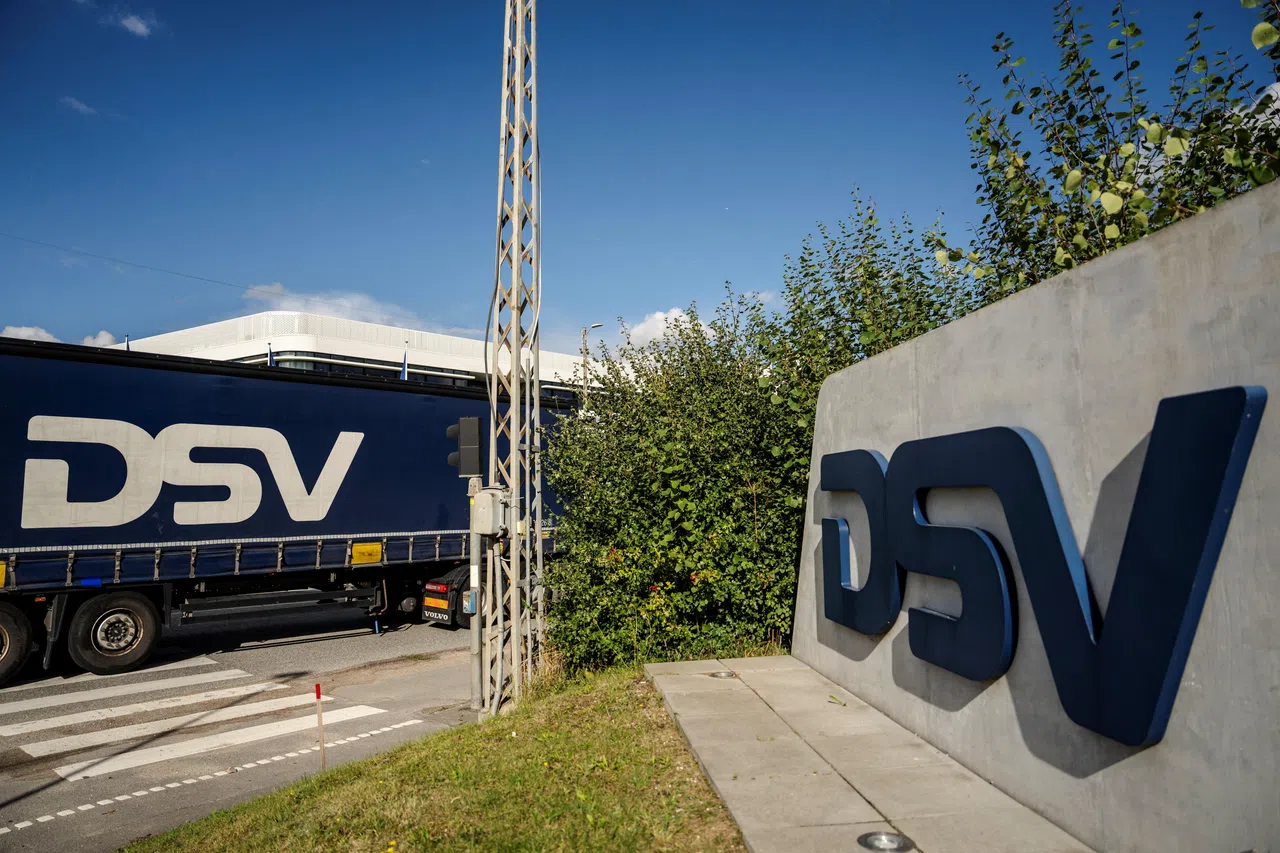DSV has sold new shares for 5 billion euros (S$7.1 billion) without resorting to a discount, as a number of high-profile investors bought large stakes in the Danish freight-forwarding company.
The accelerated bookbuilding process priced the shares at 1,410.50 Norwegian kroner apiece, the company said on Friday (Oct 4).
It matched the high end of a range at which the stock was marketed by banks. The total amount raised also equalled the top end of estimates, which DSV gave on Sep 13 to finance its 14.3 billion euro takeover of DB Schenker.
There was enough investor interest to cover the entire deal shortly after it launched. Demand for the shares exceeded the size of the deal by multiple times, a source said.
DSV shares rose as much as 9.3 per cent at the open in Copenhagen on Friday, reaching 1,542 kroner – the highest since early 2022.
The Danish company has grown through a string of large acquisitions, and gained a reputation as a successful integrator of its targets. Its stock has been rising in the past months on expectations it would land the DB Schenker deal.
BT in your inbox
Start and end each day with the latest news stories and analyses delivered straight to your inbox.
The share sale came just one day after Deutsche Bahn’s supervisory board approved the divestment of its logistics unit. This was despite resistance from German labour unions and late attempts by a rival bidder to derail the deal.
DSV received cornerstone commitments for about 21 billion kroner in aggregate, it said.
This included US$1.1 billion from funds and accounts managed by BlackRock. Capital Group bought US$700 million, while Canada Pension Plan Investment Board committed 600 million euros.
Norway’s sovereign wealth fund bought US$400 million worth of stock.
BNP Paribas, Danske Bank, HSBC Continental Europe, JPMorgan Chase and Nordea Bank helped DSV to arrange the sale.
The Danish supply chain solutions provider, which has an “A-” credit grade, has said it would tap the debt market for some of the financing.
The deal will make DSV the world’s largest freight-forwarding company, doubling its labour force to about 150,000 people. It will also turn the company into Denmark’s second-largest by revenue.
It published preliminary third-quarter earnings on Thursday, and raised the lower end of its 2024 profit guidance range. BLOOMBERG







